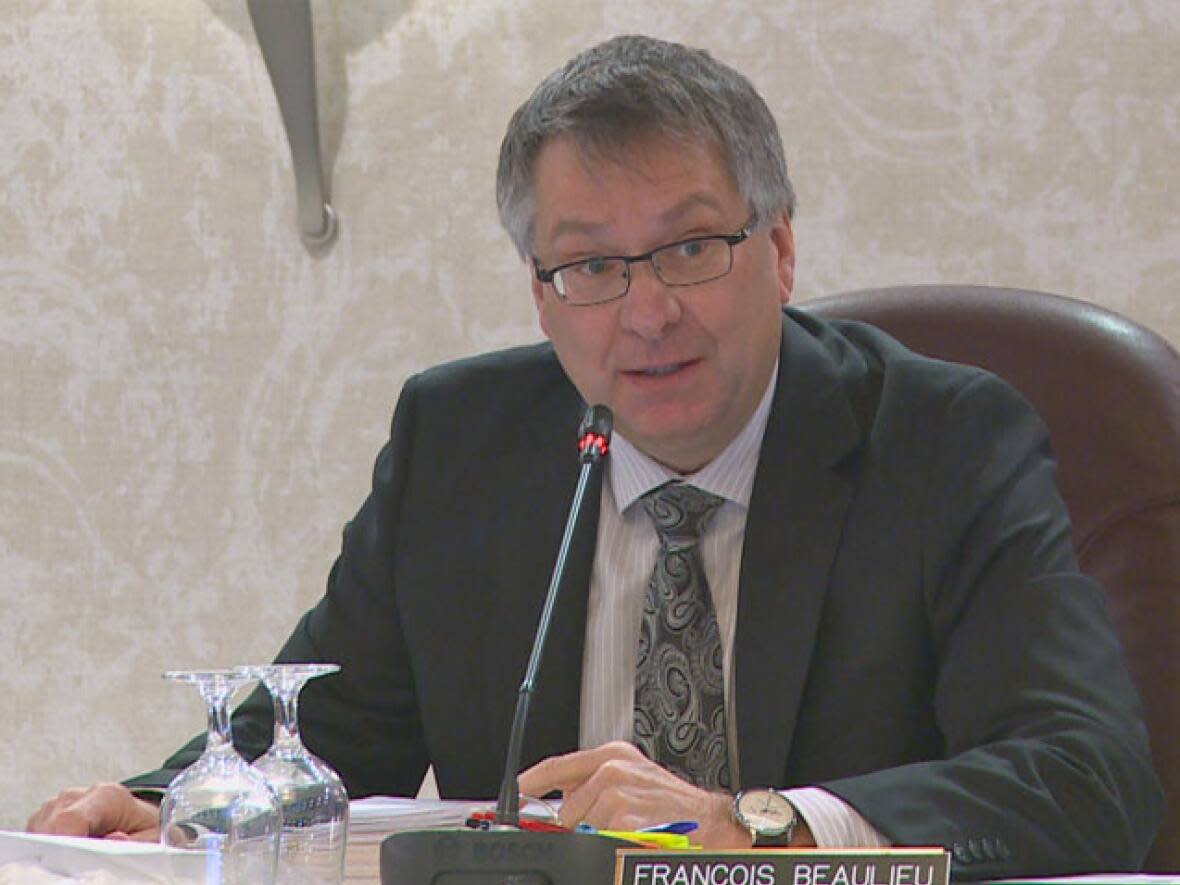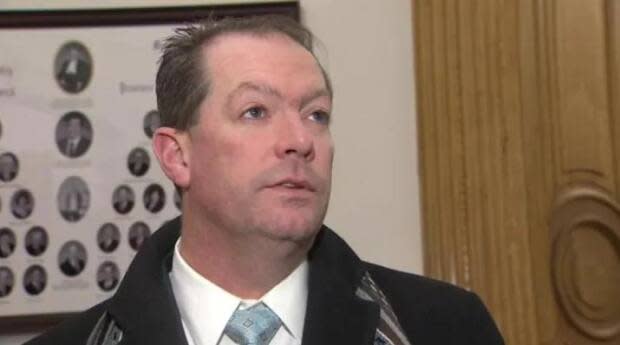Changing the gas price formula not up to us, EUB chair says

New Brunswick's Energy and Utilities Board has told elected members of the legislature that if they don't like how retail gas prices are being set in the province, it's up to them to rewrite the rules.
Board chair François Beaulieu faced questions from MLAs on the public accounts committee about why Nova Scotia's regulated gas prices appeared to plunge faster than New Brunswick's this summer.
"We don't set policies, we administer those policies," Beaulieu said.
Many New Brunswickers and even some elected politicians took to social media this summer to complain that price drops in New Brunswick were not keeping pace with those in Nova Scotia.
"They had like two days of nine and ten cents of drops, I think," New Maryland–Sunbury Progressive Conservative MLA Jeff Carr told Beaulieu.
On July 12, the regulated price for a litre of regular gas in Nova Scotia was 23 cents lower than in New Brunswick, even though the two provinces use the same gasoline market benchmark to set their maximums.
'Not a policy maker'
Beaulieu told the MLAs it's because other elements of the price-regulation laws in the two provinces are different.
And it's not up to the EUB to change those laws, or even recommend changes, he said.
"Our role is not a policy maker," Beaulieu told Moncton Centre Liberal MLA Rob McKee. "Our role is to administer whatever legislation the legislative assembly decides to do.
"So that's a policy decision. If the legislative assembly decides that needs to be done, I'll leave that to you."
The discussion centred on the interrupter clause in the province's price-setting law.
It allows unscheduled price changes outside the weekly Wednesday midnight setting if the benchmark price in New York goes up or down by more than six cents in a single day.
"It's prescribed in the legislation, and our hands our tied," Beaulieu said. "So if prices go up, prices go down, we interrupt."
In June, as soaring gas prices put pressure on politicians to give consumers relief, Premier Blaine Higgs said incorrectly that the interrupter clause was only being activated when prices shot up, not when they went down.
We don't have a choice, Mr. Carr, because it's prescribed in the legislation. - François Beaulieu, EUB chair
In fact, the interrupter clause has triggered price drops nine times since April, Beaulieu said Wednesday. It has led to price increases 13 times.
He told MLAs that Nova Scotia's prices move differently because that province's regulator has the latitude to forecast whether sudden price swings are going to let the market make too much money or lose too much money and adjust the maximum accordingly.
He said it's up to the legislature, not the EUB, to decide whether New Brunswick's law should allow the same forecasting.

He made the same argument when Carr asked about a section of the legislation that prevents the EUB from using the interrupter clause if a six-cent swing happens on a Tuesday or a Wednesday, the two-day period before its scheduled weekly setting.
"What is the reason?" Carr asked.
"We don't have a choice, Mr. Carr, because it's prescribed in the legislation," Beaulieu said.
In June, when prices hit $2.19 per litre of regular gas, Energy Minister Mike Holland wrote to Beaulieu asking him to look into how to reduce the volatility of prices and how to mitigate the impact on consumers.
The board chair responded in July that the EUB believed as a quasi-judicial body that it did not have the authority or jurisdiction to make recommendations on those issues.
'Thumbs up' for tomorrow
Earlier in the meeting, the board chair said the EUB had to tell one gas retailer in the province to stop giving customers hints in advance about whether prices were going to rise or drop on Wednesday nights.
Retailers get advance notice of the weekly setting but it's embargoed, meaning they can't release the information publicly.
But one retailer was posting thumbs up or thumbs down images on Facebook on Wednesdays.
"We called the individual and explained to him that he can't do that, and sent him a letter regarding, 'Don't do that anymore.'"
Despite that, Beaulieu dropped his own hint a few minutes later.
"So, thumbs up for tomorrow, or thumbs down?" committee chair and Liberal MLA Chuck Chiasson asked.
"Thumbs up," Beaulieu said with a laugh.


